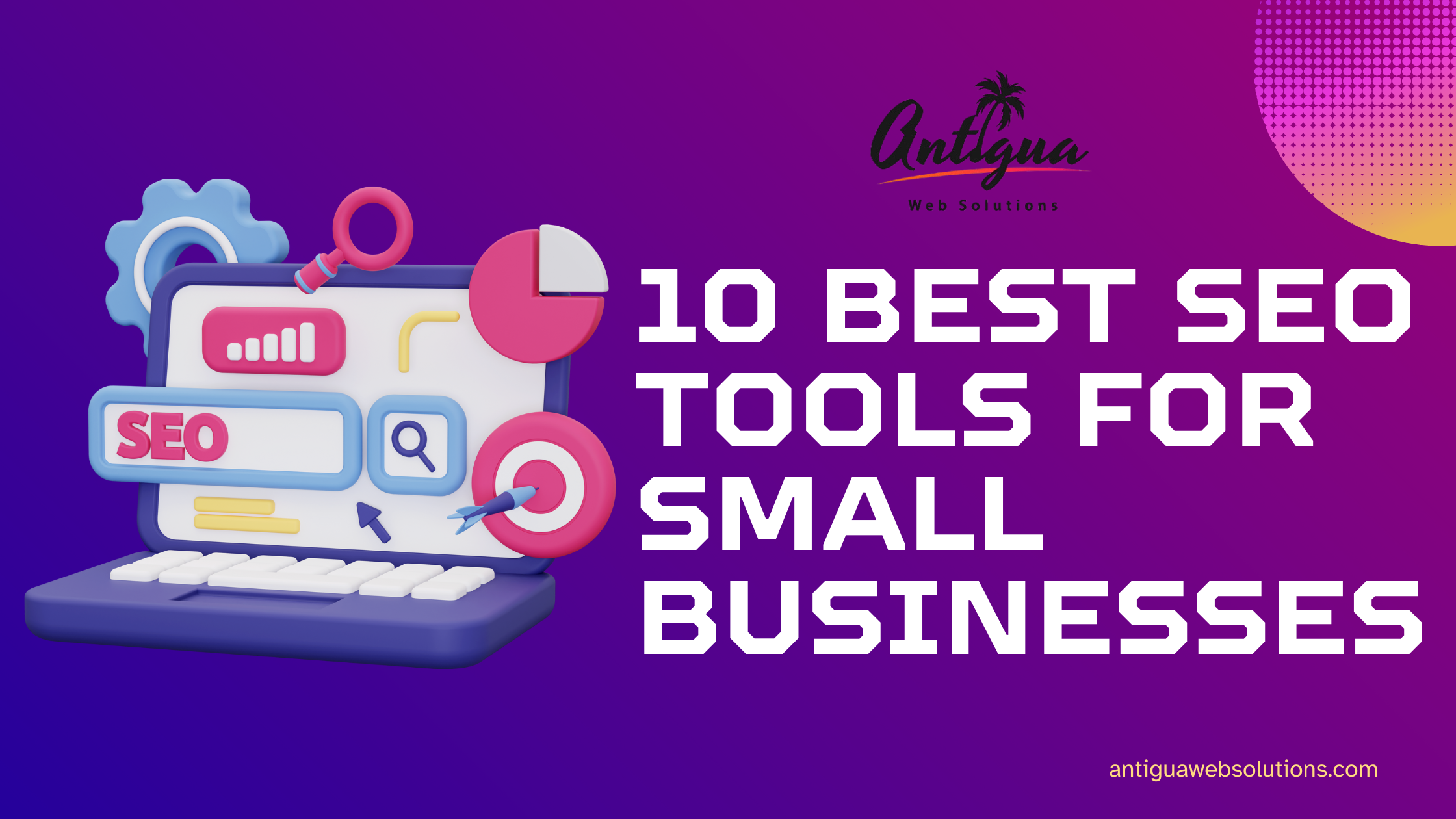In today’s digital landscape, having the right SEO tools for small businesses is essential for success. From improving website visibility to enhancing user engagement, SEO plays a critical role in driving traffic and conversions. This guide explores the best SEO tools for small businesses, focusing on their unique features, benefits, and why they are must-haves for any company aiming to grow its online presence.
Why Are SEO Tools Essential for Small Businesses?
SEO tools simplify complex processes, enabling small businesses to:
- Analyze website performance and fix technical issues.
- Identify and use keywords that drive targeted traffic.
- Track competitor strategies to gain a competitive edge.
- Enhance content creation and link-building efforts.
- Measure the effectiveness of SEO strategies.
Whether you’re looking for essential SEO tools for small businesses or the best technical SEO tools for small businesses commercial, these tools can save time and improve results.
1. Google Analytics – Free and Powerful
Why Use It:
Google Analytics is an invaluable tool for tracking website traffic, user behavior, and conversions. It integrates seamlessly with Google Search Console, providing insights into keyword performance and audience demographics.
Key Features:
- Tracks user interactions and website goals.
- Offers real-time traffic monitoring.
- Provides detailed reports on site performance.
Best For:
Businesses looking for a free yet robust analytics solution.
2. SEMrush – A Comprehensive SEO Suite
Why Use It:
SEMrush is a leading platform offering tools for keyword research, site audits, backlink analysis, and competitive analysis.
Key Features:
- Domain vs. domain comparison.
- Keyword gap analysis.
- SEO content recommendations.
Best For:
Small businesses seeking an all-in-one SEO tool to improve rankings and content.
3. Ahrefs – Perfect for Backlink Analysis
Why Use It:
Ahrefs specializes in backlink analysis, keyword research, and content gap identification. It’s a favorite among SEO experts.
Key Features:
- Comprehensive backlink analysis.
- Site Explorer to monitor organic search traffic.
- Content Explorer to find high-performing topics.
Best For:
Businesses aiming to improve their backlink profiles and domain authority.
4. Yoast SEO – Essential for WordPress Sites
Why Use It:
Yoast SEO is a WordPress plugin that helps optimize content, meta descriptions, and overall site structure for better rankings.
Key Features:
- Real-time content analysis.
- XML sitemap creation.
- Readability and keyword optimization tips.
Best For:
Small businesses with WordPress websites looking for easy-to-implement SEO strategies.
5. Moz Pro – Simplified SEO Management
Why Use It:
Moz Pro is known for its user-friendly interface and effective tools for keyword tracking, site audits, and link building.
Key Features:
- Rank tracking for keywords.
- Customizable SEO reports.
- On-page optimization recommendations.
Best For:
Small businesses new to SEO and seeking a straightforward solution.
6. Screaming Frog – Advanced Website Audits
Why Use It:
Screaming Frog is a technical SEO tool that identifies on-site issues like broken links, duplicate content, and meta tag errors.
Key Features:
- Identifies crawl errors.
- Provides insights into site architecture.
- Generates sitemaps for submission to search engines.
Best For:
Businesses needing in-depth technical SEO analysis.
7. Ubersuggest – Affordable and Effective
Why Use It:
Ubersuggest offers keyword tracking, content ideas, and competitor analysis at an affordable price.
Key Features:
- Keyword research and suggestions.
- Site audit features.
- Backlink data and monitoring.
Best For:
Small businesses on a budget seeking a reliable SEO tool.
8. Google Search Console – Free SEO Insights
Why Use It:
Google Search Console is essential for understanding how your site performs in Google search results.
Key Features:
- Tracks indexing issues and fixes.
- Provides performance data for keywords.
- Monitors mobile usability.
Best For:
Businesses looking for a free tool to monitor and improve their Google rankings.
9. Rank Math – Advanced SEO for WordPress
Why Use It:
Rank Math is a feature-rich WordPress plugin offering advanced SEO capabilities.
Key Features:
- Focus keyword optimization.
- Rich snippet and schema support.
- 404 error monitoring.
Best For:
WordPress users who need a comprehensive yet easy-to-use SEO plugin.
10. BuzzSumo – Content and Social Proofing
Why Use It:
BuzzSumo identifies high-performing content and analyzes social proofing metrics to enhance your content strategy.
Key Features:
- Tracks trending topics and keywords.
- Monitors social media shares and engagement.
- Identifies influencers for collaboration.
Best For:
Businesses focusing on content marketing and social proofing in digital marketing.
How to Choose the Best SEO Tools for Your Business
When selecting the best SEO tools for small businesses, consider the following:
- Budget: Free tools like Google Analytics and Google Search Console are excellent starting points.
- Business Goals: Define whether your focus is technical SEO, content optimization, or backlink building.
- Ease of Use: Choose tools that match your team’s expertise and learning curve.
- Features: Ensure the tool offers insights into critical areas such as traffic, keywords, and competition.
Conclusion
Investing in the best SEO tools for small businesses can make a significant difference in your online visibility and overall success. From free tools like Google Search Console to premium platforms like Ahrefs, there’s an option for every need and budget.
At Antigua Web Solutions, we specialize in providing tailored SEO services to help small businesses grow. Whether you’re exploring technical SEO tools for small businesses commercial or need guidance on social proofing strategies, we’re here to help. Start optimizing your website today and unlock your business’s full potential!





